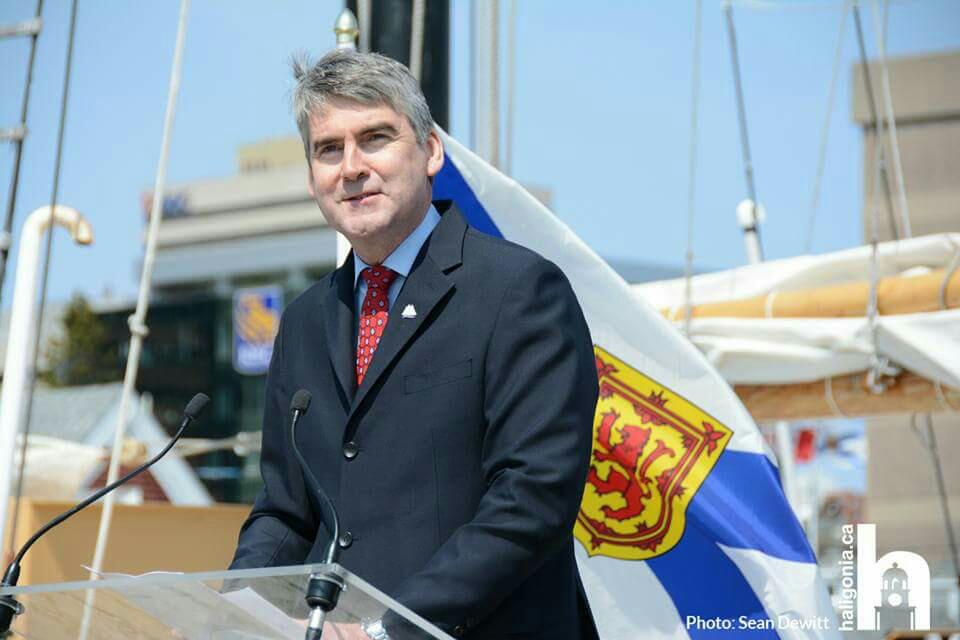Budget 2017-2018 has a positive net position of $25.9 million on estimated revenues of $10.6 billion and expenses of $10.5 billion.
“Over the past three years we worked with Nova Scotians to put us in a stronger position to invest in new opportunities for growth,” said Randy Delorey, Minister of Finance and Treasury Board. “We are in the position to make new investments in infrastructure, to provide more supports to youth and young families, to invest in new ideas that will create a better economy, and to make investments to create heathier and stronger communities.”
Budget investments in infrastructure include:
— major highway projects and four new interchanges on 100-series highways, part of a seven-year plan to twin three sections of 100 series highways
— new and upgraded health-care facilities in Halifax, Dartmouth and Hants County to support the QEII redevelopment project
— repairing and rebuilding gravel roads – $10 million each year of a new multi-year program
— new schools in Spryfield, Tatamagouche, Bridgetown, Bible Hill, Sheet Harbour, Eastern Passage, Dartmouth, Halifax and Yarmouth
— $40 million for municipal clean water and waste water projects
— $38 million for affordable housing, including creating new affordable housing units and improving affordable housing options, in partnership with the federal government.
Budget investments in youth and jobs include:
— $3.7 million to add 30 new pre-primary sites with early learning programming for four-year-olds with a plan to extend it provincewide in four years
— $1.7 million more for the Graduate to Opportunity program and $1.7 million to fund a new program for employers to hire recent master’s and PhD graduates
— $1.3 million to eliminate the tuition apprentices pay for technical training
— $2.1 million for coding and computer skills and to expand the Reading Recovery Program to 73 more schools
— $1.8 million to increase community and mental health supports for students, through the SchoolsPlus program
— $1.4 million for additional school psychologists and speech-language pathologists
— $800,000 to support families with children with autism through a new pilot program and regional centres.
Budget investments in new ideas for a better economy include:
— reducing taxes for 1,800 small businesses by increasing the small business tax threshold to $500,000 from $350,000
— $14.5 million for rural high-speed Internet
— $1.3 million to increase opportunities for more export and trade, including a new export accelerator program
— $4 million to support innovation initiatives, including a new rebate program and more support for business startups
— $500,000 in additional funding to double the Small Business Development program
— $2 million to revitalize the province’s key tourism sites
— $2.1 million to support the new Culture Action Plan.
Budget investments in supports for an aging population include:
— $395,000 to establish a social innovation lab focused on aging
— $50,000 for a community Internet/digital literacy training project
— $30,000 to promote entrepreneurship for older adults
— $3.2 million to increase food budgets and enhance recreational programming for residents in long-term care facilities
— $250,000 more for the Seniors Safety and Age-Friendly
Community grant programs
— $7.9 million to meet the needs of Nova Scotians age 65 and older enrolled in the Seniors Pharmacare Program.
Budget investments in healthy people and communities include:
— reducing taxes for more than 500,000 people in the middle class and people who need it most by increasing the basic personal amount by up to $3,000, effective Jan. 1, 2018
— $2 million to create and begin to implement a plan to address poverty in Nova Scotia
— advancing plans for satellite dialysis units at hospitals in Bridgewater, Kentville, Digby and Glace Bay, and expanding dialysis services in Halifax and Dartmouth
— $5.1 million more for home care, including increases for the self-managed care and the caregiver benefit programs
— $6 million to advance new collaborative care teams across the province
— $1.2 million increase to help foster parents meet the day-to-day needs of the children in their care
— $2.4 million more to support recruitment and retention of doctors
— $3.7 million more to provide additional orthopedic surgeries and offer prehabilitation services to help people prepare for surgery
— $3.2 million to enhance mental health programs
— $3.9 million to support more people with disabilities to live independently in the community
— $1.1 million to continue work to address sexual violence.
Budget 2017-2018 projects a $136.2-million surplus. The surplus includes a one-time revenue increase of $110.3 million because of federal and municipal contributions for the convention centre in Halifax. The $110.3 million will go towards the debt to provide the fiscal capacity to launch a multi-year development of the QEII Health Sciences Centre, enhancing care for Nova Scotians and Atlantic Canadians. The resulting net position is $25.9 million.
Revenue and expenses, including consolidation and accounting adjustments, are both estimated to increase by 3.1 per cent from Budget 2016-2017.
Budget 2017-2018 also includes the Capital Plan, which invests $515 million in roads, schools, health care and public infrastructure.
The budget also contains the final forecast for 2016-2017, which updates the positive net position to $40.8 million. Additional appropriations for 2016-2017, totalling $129.6 million, were required to cover unforeseen or unbudgeted expenses for assistance to universities and at the departments of Transportation and Infrastructure Renewal, Communities, Culture and Heritage, Energy and Labour and Advanced Education.
For more information about Budget 2017-2018, visit www.novascotia.ca/budget .
.
Source: Media Release

